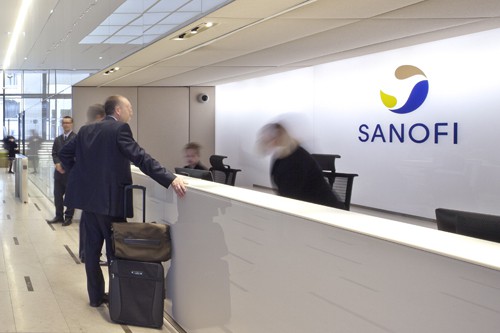
Sanofi is paying €120m upfront for a share in a respiratory syncytial virus (RSV) drug in development at AstraZeneca’s MedImmune unit.
The deal also includes up to €495m in development and sales milestone payments and focuses on MEDI8897, a follow-up to AZ’s already-marketed Synagis (palivizumab) which is the first and only approved passive immunisation therapy for RSV. The partners hope the new drug could open up the market for RSV prevention, which is currently limited to high-risk patients.
RSV is the most common cause of acute lower respiratory tract infection in children, with around 2.5m cases each year in the US that are serious enough to warrant medical intervention. At the moment the only way to manage the infection is prevention, as despite years of R&D there are no approved drugs to treat RSV once established.
Synagis brought in $677m in sales for AZ last year, with sales down from a $1bn-plus peak since the start of generic competition in some markets. It is without question a life-saving drug but it has some limitations, requiring quite a high dose (15mg/kg) that in smaller infants has to be given in multiple injections, repeated every month. That means it isn’t suitable for use in a broader population of healthy infants.
MEDI8897 is a fully-human antibody that has an extended half-life in the body, so could be administered less frequently than its predecessor, possibly just once at birth and seasonally thereafter.
It can be given at a fixed dose so does not require weight-based adjustment and according to MedImmune could be given just like a vaccine – with vaccine-like pricing – so it makes sense for AZ to partner with a vaccine specialist like Sanofi.
The new antibody is currently in a phase IIb trial in pre-term infants who are ineligible for treatment with Synagis and it has already been granted fast-track review by the FDA.
“RSV is considered to be the most important missing indication in the vaccination schedule of newborns,” said David Loew, who heads Sanofi’s vaccines unit Sanofi Pasteur. “As a global leader in the paediatric vaccine industry, this deal with MedImmune therefore makes perfect sense for Sanofi Pasteur.”
MedImmune is facing competition in the broader RSV population from US biotech Novavax, which has an RSV vaccine candidate in two phase III trials that some analysts predict could become a $2bn product in the mid-2020s.
Novavax’ product would prevent RSV in infants by vaccinating the mother and is being developed with the help of an $89m grant from the Bill & Melinda Gates Foundation, thanks to its potential to reduce global infant mortality. Data on its efficacy should be available before the end of the year.




